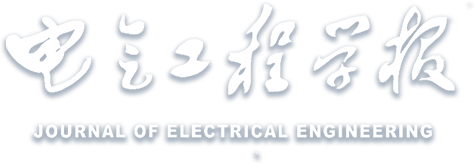Abstract:
In the energy-release stage of distributed compressed air energy storage, the high-speed turbine generator is usually connected to the micro-grid via a power electronic converter. This connection causes the output frequency to be highly sensitive to load variations, thereby significantly impacting the micro-grid's frequency support capacity. To tackle this problem, an adaptive control strategy for the virtual synchronous generator(VSG) improved by active-power differential compensation is proposed. Firstly, based on the traditional VSG control strategy, an active-power differential compensation component is incorporated. This addition can effectively suppress frequency oscillations and enhance the system's stability. Moreover, in accordance with the input thermodynamic state parameters of the high-speed turbine generator in compressed-air energy storage, an adaptive VSG control strategy for inertia and damping coefficients based on active-power differential compensation feed-forward is presented. This strategy enables the compressed air energy storage to balance system rapidity and stability and restrain the volatility of the output power of the VSG in compressed air energy storage. Finally, the effectiveness of this proposed strategy is verified through simulation.


 下载:
下载: